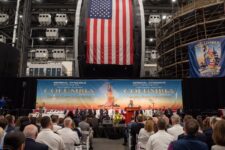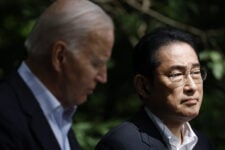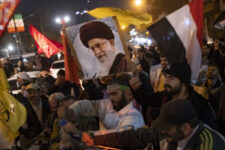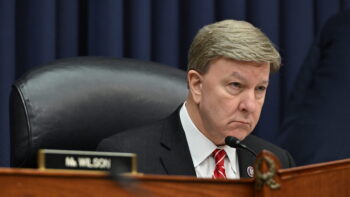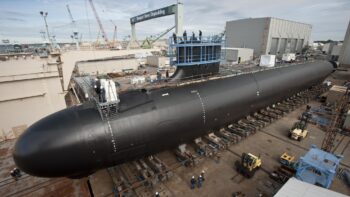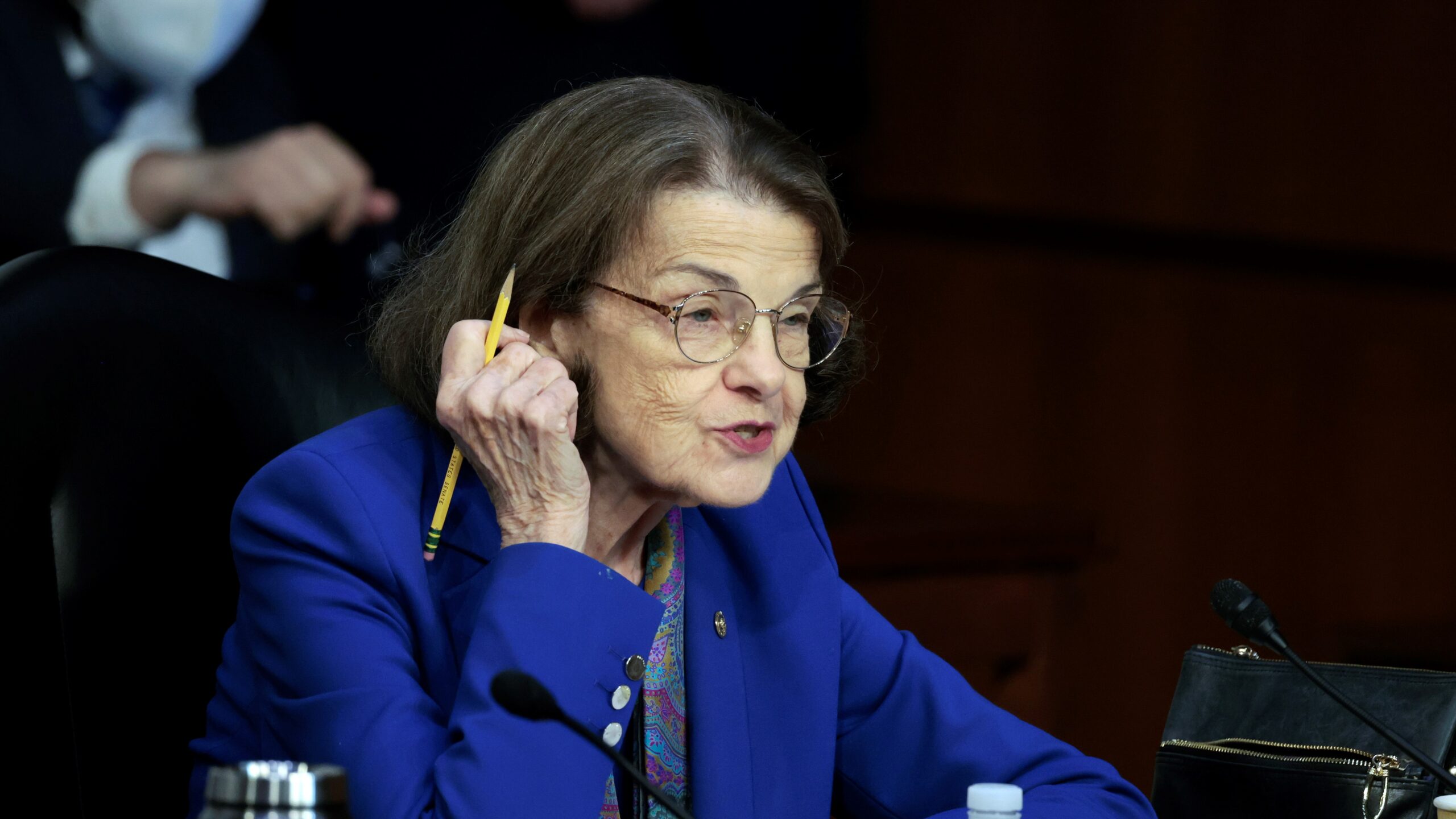
Sen. Dianne Feinstein (D-CA) speaks during a Senate Judiciary Committee confirmation hearing. (Anna Moneymaker/Getty Images)
CORRECTION: This story was updated 5/14/22 at 2:45 pm EST with a new headline and lead paragraph. The original version of both indicated Raymond directly commented on the Space Guard proposal, which he did not.
WASHINGTON: With new legislation introduced to force the creation of a Space National Guard program, the question of the newest military service’s structure is once again in the spotlight.
On May 3, Gen. Jay Raymond, the Space Force head, told a Senate Armed Services Committee hearing that a Space Guard setup could be done two ways: “Either have a separate Space National Guard or take the capabilities from the Guard and move them into” a single component concept.
Speaking May 13 in front of the House Appropriations defense subcommittee, Raymond elaborated, saying that working out the service structure is a top priority for him.
“Over the past two years, we have overhauled how we recruit, assess, train, develop, promote and employ and take care of Guardians. Resilient space power isn’t just about satellites. It’s also about Guardians. This is one of the reason why we are seeking the integration of active duty and reserve forces into a single hybrid component structure,” he told the House Appropriations defense subcommittee.
Raymond’s remarks came on the heels of the May 11 move by 12 senators with Air National Guard space units in their states to — led by the rare pairing of California Democrat Diane Feinstein and Florida Republican Marco Rubio — to propose legislation designed to create a separate Space Guard. It was co-sponsored by Senators John Hickenlooper, D-Colo., Lisa Murkowski, R-Alaska, Michael Bennet D-Colo., Marsha Blackburn, R-Tenn., Joe Manchin, D-W.Va., Rob Portman, R-Ohio, Rick Scott, R-Fla., Alex Padilla, D-Calif., Mike Braun, R-Ind. and John Cornyn, R-Texas.
“Without a National Guard component for Space Force, we risk losing many talented individuals who want to keep serving their country and their states after they leave active duty, and that is simply unacceptable,” Feinstein said in the announcement of the legislation. “Creating a Space Force National Guard would also save money and ensure a smoother process in the event we need to activate personnel. Not establishing a Space National Guard was a mistake when Space Force was created, and this bill will remedy that.”
The issue has been simmering ever since the creation of the Space Force in December 2019, with National Guard leadership vocally making the case for a new branch. Indeed, in early 2020 top Guard adjutants general broke with the Pentagon to speak out in favor of a separate Space Guard, and began a congressional lobbying campaign.
Thus, it comes as no surprise that the National Guard Association of the United States (NGAUS), representing some 45,000 current and former guardsmen, on Thursday came out in support of the Feinstein-Rubio bill.
“Approximately 1,000 space professionals are in 16 Air National Guard units across eight states and territories. They provide 60% of the military’s space electronic warfare capability, the only mobile, survivable missile-warning capability and 100% of the surge capacity,” the NGAUS press release said.
But those highly qualified people have essentially been “orphaned” within the Air Force for the past two years, NGAUS head J. Roy Robinson said in the release. “This complicates acquiring needed resources and professional development,” he said.
Speaking in front of the Senate Armed Services Committee’s Strategic Forces subcommittee on May 11, Raymond’s second in command, Gen. DT Thompson, said that the service hopes to finish a study on how best to integrate the current members of the Air National Guard into the space service in time for the 2024 budget drop.
Thompson reminded lawmakers that the Biden administration last year formally rejected the concept, and reiterated the importance of making a path for current Air National Guard members who wish to affiliate with the Space Force.
“We cannot do without the capability and missions that they provide today moving into the future,” Thompson said.
However, he responded to arguments by Sen. Mark Kelly, D-Ariz. in favor of a separate Space Guard by explaining that the ongoing Space Force study also is looking at how to replace any current space-focused guards who might not wish to relocate to join the new Space Component.
“We are making no assumptions about whether those members would accept or desire that transfer, or not. We are certainly, as part of our assessment, determining what would be required to replace those members by Space Force members — the numbers it would take, the training time it would take, the training resources that would take, and the corresponding degradation in mission as we bring those those units back up to full status,” Thompson said.
Multi-ship amphib buy could net $900M in savings, say Navy, Marine Corps officials
Lawmakers gave the Navy authorities to ink a multi-ship amphib deal years ago, but the service has not utilized that power yet.










